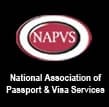The Department of State authorized the return of all family members to U.S. Embassy Riyadh, U.S. Consulate General Jeddah, and U.S. Consulate General Dhahran, but continues to warn U.S. citizens about the security situation in Saudi Arabia and reminds U.S. citizens of recommended security precautions. The Department of State urges U.S. citizens to carefully consider the risks of traveling to Saudi Arabia. There is an ongoing security threat due to the continued presence of terrorist groups, some affiliated with al Qaida, who may target Western interests, housing compounds, hotels, shopping areas, and other facilities where Westerners congregate. These terrorist groups may employ a wide variety of tactics and also may target Saudi government facilities and economic/commercial targets within the Kingdom. This updates and replaces the Travel Warning issued February 18, 2010, to note the authorized return of U.S. government dependents to all posts in Saudi Arabia.
The last major terrorist attack directed against foreign nationals was in 2007. Significant measures since then by the Saudi government have greatly improved the security environment throughout the Kingdom. The Department of State has since authorized the return of all family members to U.S. Embassy Riyadh, U.S. Consulate General Jeddah, and U.S. Consulate General Dhahran. While these changes reflect a continued improvement in the security climate in Saudi Arabia, particularly in the Eastern Province and Riyadh, it is important to note that there remains an ongoing security threat. U.S. citizens who visit Saudi Arabia are strongly encouraged to take precautions when selecting hotels or housing compounds to ensure that stringent security measures are provided. In addition, U.S. citizens are always advised to be aware of their surroundings when traveling or visiting commercial establishments frequented by Westerners. U.S. citizens are also advised to keep a low profile, vary times and routes of travel, exercise caution while driving, entering or exiting vehicles, and ensure that travel documents and visas are current and valid.
If the security threat changes or specific threats affecting U.S. citizens are discovered, this information will be made available through the Warden System and U.S. Mission websites. Warden messages can be found on theU.S. Embassy Riyadh website.
All travelers are encouraged to enroll in theDepartment of State’s Smart Traveler Enrollment Program (STEP) to receive the latest travel updates and information. Updated information on travel and security in Saudi Arabia may also be obtained from the Department of State by calling 1-888-407-4747 from within the United States and Canada or, from outside the United States and Canada, on a regular toll line at 1-202-501-4444. These numbers are available from 8:00 am to 8:00 pm Eastern Time, Monday through Friday (except U.S. federal holidays.) For additional information, consult the Department of State’s Country Specific Information for Saudi Arabia and Worldwide Caution. For after-hours emergencies, U.S. citizens may telephone the Embassy in Riyadh at (966) (1) 488-3800, the Consulate in Jeddah at (966) (2) 667-0080, or the Consulate in Dhahran at (966) (3) 330-3200.
U.S. Embassy Riyadh
International mailing address: P.O. Box 94309, Riyadh 11693.
Mail may also be sent via the U.S. Postal Service to: U.S. Embassy, Unit 61307, APO AE 09803-1307.
Telephone: (966) (1) 488-3800
Fax: (966) (1) 483-0773.
U.S. Consulate General Dhahran
International mailing address: P.O. Box 38955, Doha-Dhahran 31942.
Mail may also be sent via the U.S. Postal Service to: Unit 66803, APO AE 09858-6803.
Telephone: (966) (3) 330-3200
Fax: (966) (3) 330-0464.
U.S. Consulate General Jeddah
International mailing address: P.O. Box 149, Jeddah.
Mail may also be sent via the U.S. Postal Service to: Unit 62112, APO AE 09811-2112.
Telephone: (966) (2) 667-0080
Fax: (966) (2) 669-3078 or 669-3098.
Stay up to date by bookmarking our Bureau of Consular Affairs website, which contains the current Travel Warnings and Travel Alerts as well as the Worldwide Caution. Follow us on Twitter and the Bureau of Consular Affairs page onFacebook as well.




